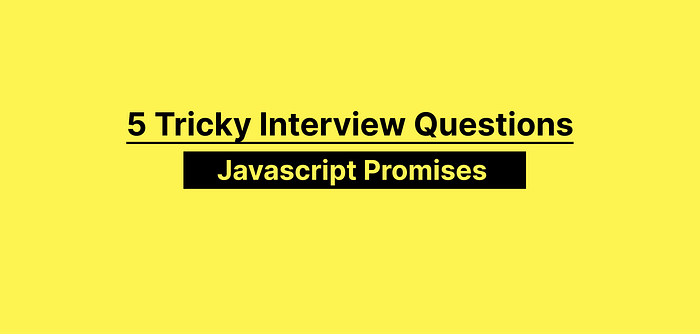Member-only story
Javascript Interview: 5 promise questions you can see in your interview
Published in
3 min readJan 6, 2025

1. Guess the output
new Promise((resolve, reject) => {
resolve(1)
resolve(2)
reject('error')
}).then((value) => {
console.log(value)
}, (error) => {
console.log('error')
})Answer: 1
Explaination:
When the new promise is created, it is immediately resolved with the value 1 in the first resolve(1) statement. Although resolve(2) and reject('error') are called afterward, they are ignored because a promise can only be settled once. Since the promise resolves with 1, the .then() method's success callback is triggered, logging 1. The rejection callback (error) is never called, as the promise was already resolved.
2. Guess the output
console.log(1)
const promise = new Promise((resolve) => {
console.log(2)
resolve()
console.log(3)
})
console.log(4)
promise.then(() => {
console.log(5)
}).then(() => {
console.log(6)
})
console.log(7)
setTimeout(() => {
console.log(8)
}, 10)
setTimeout(() => {
console.log(9)
}, 0)Answer: 1 2 3 4 7 5 6 9 8
Explaination:
console.log(1)prints1.- The promise constructor runs, logging
2, then resolves, logging3.

